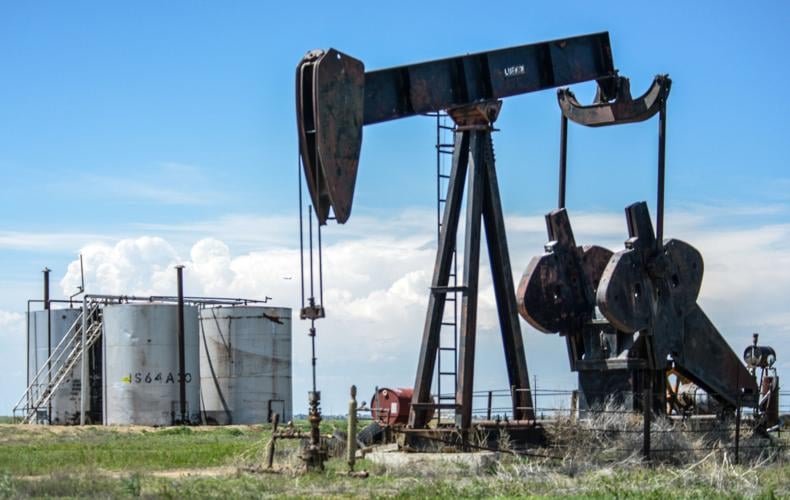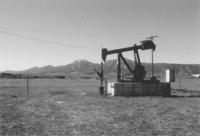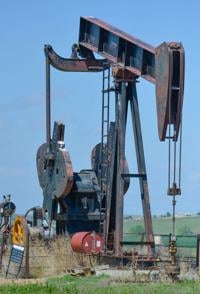A proposal at the state Capitol to ban new oil and gas drilling in Colorado by 2030 — which sponsors claim is necessary to counteract climate change and address "adverse health impacts" — is raising a furor throughout the industry.
Meanwhile, a spokesperson for Gov. Jared Polis said he was not consulted on the proposal and had yet to review it.
The measure argues Colorado's economy is “ready for the clean energy transition,” claiming the industry produces “roughly four times more natural gas, and two times more oil than Coloradans use.”
Sponsored by Sen. Sonya Jaquez Lewis, D-Boulder, the bill says existing wells will "continue to produce for decades" and the state's energy needs "are increasingly being met by renewable sources."
Oil and gas production in Colorado is among the state's top industries. A study from the American Petroleum Institute said that, in 2021, oil and gas activities contributed more than $48 billion to Colorado's gross domestic product — $19.8 billion in direct benefits and $20.8 billion in indirect benefits, which constituted 11.2% of the state’s total GDP.
The study, prepared by PricewaterhouseCoopers, shows the industry supports more than 300,000 jobs, both direct and indirect, comprises 7.7% of Colorado’s total employment and provides $34.1 billion in labor income.
“The mere introduction of this bill sends a chilling message to every business across the state that some of our elected leaders are willing to put you out of business, even if you supply a product they use every single day,” Dan Haley, president and CEO of the Colorado Oil and Gas Association, said in a statement. “Who’s next on their ban list?”
The draft legislation says the “adverse health impacts of oil and gas pollution” lead to a wide range of problems and that “over half of all Coloradans live in areas exposed to pollution from oil and gas operations.” It adds that “climate pollution from oil and gas wells in Colorado exacerbates climate change, which has been declared the greatest global threat to public health by 200 medical journals.”
The legislation cites “international reports and agreements,” noting, for example, the U.N. Framework Convention on Climate Change and a report by the International Energy Agency, which said “an end to new fossil fuel development is needed for a 50 percent chance of limiting global warming to one and one-half degrees Celsius.”
In addition to the oil and gas drilling ban, the measure imposes liability for decommissioning and remediating wells, saying it is "just and equitable for the owners and operators that have profited from oil and gas activity to pay for the remediation costs.” It goes on to say that “it is a matter of great importance to public health and safety” that the costs “be paid to the fullest extent by all potentially responsible parties.”
The proposal makes prior owners and operators liable for cleanup costs of wells, regardless of how long ago they owned the facility and whether the prior operator violated any law. A draft of the proposal shows Reps. Andrew Boesenecker and Julia Marvin, both Democrats, as co-sponsors in the House.
“A ban on oil and gas drilling in Colorado almost certainly would implicate Fifth Amendment rights, as the property rights of mineral owners, as well as royalty owners, would be rendered valueless as a result of such a statutory ban,” said Jack Luellen, energy & natural resources special counsel in the Denver office of the Buchalter Law Firm.
Luellen was referring go the Fifth Amendment to the U.S. Constitution, which prohibits the taking of private property for public use "without just compensation." Section 15 of the Colorado Constitution mirrors the federal provision: “Private property shall not be taken or damaged, for public or private use, without just compensation.”
“In the event of a finding that a statutory ban was a regulatory taking, those whose property was taken would be entitled to just compensation. That compensation would be paid by the government itself," Luellen said. "Taxpayers would foot the bill for compensation while, at the same time, suffering the consequences of lost tax revenues.”
The American Petroleum Institute said shutting down production in Colorado would increase dependence on energy from foreign countries and affect national security.
Kait Schwartz, director of API Colorado, called the proposal an attempt to "advance the agenda of environmental extremists.”
“The sponsors of this bill are doing nothing less than championing the most extreme anti-energy proposal in the history of our state, all the while ignoring the needs of everyday Coloradans who are already struggling with increasing everyday costs, including utility rates," Schwartz said.
Haley of the Colorado Oil and Gas Association added that the state produces “some of the cleanest oil and natural gas molecules across the country, under the most stringent regulations.”
“If this bill were to pass, it would not only crush the economy, but it would hurt the environment by relying on foreign countries with lesser environmental standards to provide the energy we need,” he said.
Jaquez Lewis did not return a request for comment.
Supporters of the transition away from fossil fuel say the move is necessary to slow or stop climate change and that it is beneficial to the environment. They argue that cleaner air benefits human health. Finally, they maintain that technological advances have made "renewable" energy cheaper and express optimism that, over time, such sources would become more and more reliable.
In a statement to The Denver Gazette, a spokesperson for Polis said, “The governor was not consulted on this legislation and has not reviewed it yet.”












 Your Privacy Choices
Your Privacy Choices